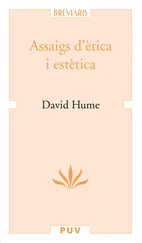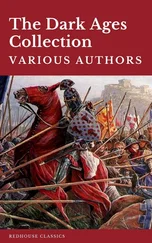These operations in the region of the Save were probably connected with an attempt to make his authority felt in the Pannonian province. Of the conditions in Noricum and Pannonia at this time we have no clear idea. But we know that about the year 507 Theoderic settled a portion of the Alamannic people in Pannonia, perhaps in Savia. The remnant of this people, after their defeat by Clovis (perhaps in A.D. 495), had wandered southward into Raetia to escape the sword or the yoke of the victor. Clovis requested Theoderic to surrender them, and we possess Theoderic’s reply. He deprecated the Frank king’s desire to push his victory further. “Hear the counsel,” he wrote, “of one who is experienced in such matters. Those wars of mine have been profitable, the ending of which has been guided by moderation.” He took the Alamanni under his protection and gave them a home within the borders of his kingdom. 129
In his relations with foreign powers, Theoderic acted as an independent sovran. The four chief powers with which he had to reckon were the Visigoths, the Burgundians, the Franks, and the Vandals. It was natural that he should look for special co-operation from the Visigoths, who were a kindred folk. But his policy at first was not to draw the Visigoths into a close intimate alliance, which might seem a threat to the other powers. He sought to form bonds of friendship with all the reigning houses, by means of matrimonial alliances. If he wedded one of his daughters to the Visigothic king, Alaric II, the other married Sigismund (A.D. 494), who became king of the Burgundians after his father Gundobad’s death. Theoderic himself took as his second wife a Frankish princess, sister of Clovis. And his own sister married Thrasamund, king of the Vandals (A.D. 500). Thus he formed close ties with all the chief powers of the West. 130One object of this policy was doubtless to maintain the existing order of things, to preserve peace in western Europe, and secure Italy against attack. But we can hardly be wrong in thinking that it was also the purpose of Theoderic to secure his own position in Italy, in relation to the Imperial power. He could hardly fail to foresee that the day might come when Anastasius or one of his successors might decide to bring Italy under his immediate government or to deal with himself as Zeno had dealt with Odovacar. To meet such a danger, it would be much to have behind him the support of the western powers. As the centre and head of the system, linking together the German royalties, he would be in a far stronger position in regard to his sovran at Constantinople than Odovacar had been standing alone.
The family alliances of Theoderic did not avail to hinder war. He could not avert the inevitable struggle between the Franks and the Visigoths in Gaul. No moment in his reign caused him perhaps more anxiety than when Clovis declared war upon Alaric. Theoderic did what he could. We have the three letters which he wrote at this crisis to Alaric, to Gundobad, and to Clovis himself. 131It was in vain. Theoderic promised armed help to his son-in-law. But for some reason he was unable to render it. It would seem that he had calculated that the Burgundians would not side with the Franks, and that they cut him off so that he could not reach Aquitaine in time to intervene in the struggle. On the field of Vouillé (near Poictiers) the Visigothic king fell and Aquitaine was annexed to the dominion of the Franks (A.D. 507). But in the following years the generals of Theoderic conducted campaigns in Gaul. They succeeded in rescuing Arles and in saving Narbonensis for the Visigothic kingdom. They wrested Provence from Burgundy and annexed it to Italy. At the same time the personal power of Theoderic received another extension. The heir of Alaric was a child, and the government of his realm was consigned to Theoderic, who was his grandfather and most powerful protector. For the rest of his life Theoderic ruled Spain and Narbonensis. Thus no inconsiderable part of the western section of the old Roman Empire was under his sway: Spain, Narbonensis, and Provence, Italy and Sicily, the two provinces of Raetia, Noricum, part of Pannonia, and Dalmatia.
Thus the war in Gaul involved Theoderic, in spite of his relations to the royal houses, in hostilities against both the Franks and the Burgundians. The Burgundian alliance does not seem to have led to any close intimacy. Gundobad remained an Arian till his death (A.D. 516), but he took good care to remain on friendly terms with Anastasius. His son Sigismund, Theoderic’s son-in-law, who succeeded him, had been converted to Catholicism 132by Avitus, the bishop of Vienne, and appears to have been completely in the hands of Avitus and the Catholic clergy. He looked to the Emperor as his overlord, and addressed him in almost servile terms. 133Theoderic was alarmed at the prospect of political intimacy between Burgundy and Constantinople, and he would not allow Sigismund’s messengers to travel through Italy to the East. 134The strained relations between the courts were shown by the circumstance that the consulship of Eutharic was not accepted in Burgundy as the date of A.D. 519. 135Theoderic probably placed his hopes in his grandson Sigeric, who, though he had been converted to the Catholic creed, was not on good terms with his father. His mother was dead, and Sigismund had taken a second wife. We know nothing authentic of the breach between father and son, but the end was that Sigeric was put to death by his father’s orders (A.D. 522). 136Theoderic prepared for war to avenge his grandson, but it was the Franks, not the Ostrogoths, who were to punish Sigismund. It was not to their mind that Theoderic should have a free hand in Burgundy, and moving more quickly, they captured Sigismund and his family and subdued a part of the kingdom. An Ostrogothic force arrived afterwards and annexed the district between the Isère and the Durance to Theoderic’s realm (A.D. 523). 137
The war between the Franks and Visigoths seems to have led to friction between Theoderic and the Emperor. In that struggle Clovis posed as the champion of Catholic orthodoxy, going forth to drive the Arian heresy from the confines of Gaul, and all the sympathies of the Gallo-Roman Church were with the Franks. The Emperor afterwards showed his approbation of the Merovingian king by conferring upon him the honorary consulship. 138Theoderic meanwhile was supporting the Visigoths, and we may conjecture that his Gallic policy was disapproved by Anastasius, who (A.D. 508) despatched a squadron of a hundred ships to ravage the coasts of Apulia. 139
The ecclesiastical relations between Rome and Constantinople affected the political situation in Italy, more or less, throughout the reign of Theoderic. 140This was partly due to the fact that the great Roman families were now all Christian, and many of the senators held strong opinions on the subject of the schism which the Henotikon of Zeno had provoked. Festus had taken advantage of his political mission to Constantinople in A.D. 497 to attempt to heal the schism. He told the Emperor that he had hopes of inducing the Pope Anastasius to sign the Henotikon. But when he returned to Italy the Pope was dead. 141Festus, however, only represented the opinion of part of the Senate. There was a marked division in the views of the senators, of whom an influential section were opposed to any compromise on the theological question. This difference of opinion led to a bitter struggle over the election of a new Pope. Two men were elected on the same day (November 22, A.D. 498), Laurentius, the candidate of Festus and the party of reconciliation, and Symmachus, supported by the orthodox, who were prepared to make no concessions. Two rival Popes were enthroned in Rome, each upheld by strong and determined partisans, and for years the city was disturbed by sanguinary tumults. 142An appeal was made to Theoderic to decide between the two claimants. It is a remarkable episode in the history of the Church that such a question should be referred to an Arian. As the tranquillity of Italy was in peril, the ruler could not stand aloof, and he consented to give a decision. He was conscious of his obligations to Festus, but the clergy, especially the clergy of North Italy, were as a body adherents of Symmachus, and it was in favour of Symmachus that Theoderic decided (A.D. 499).
Читать дальше












